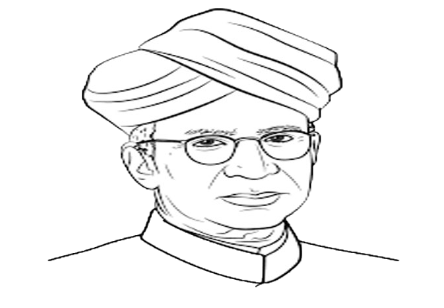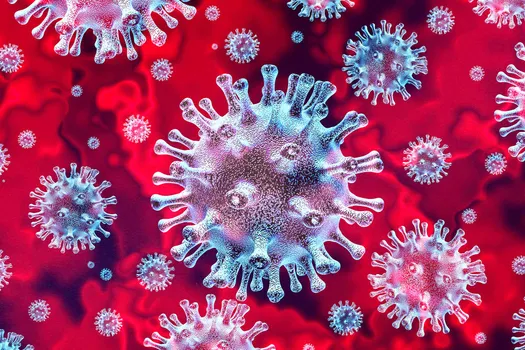Articles to read
Teacher's Day
A teacher is a friend, philosopher, and guide who holds our hand, opens our mind, and touches our heart. The contribution of a teacher cannot be ignored at all. In many countries across the world, teacher's day is a special day where teachers of schools, colleges, and universities are honored specially. The date varies from country to country. The universally accepted World Teacher's Day is 5th October. In India, the Teacher's Day is celebrated on 5th September and this tradition started from 1962. This is the when Dr. Sarvepalli Radhakrishnan was born. He was a philosopher, scholar, teacher, and politician and his dedicated work towards education made his birthday an important day in the history of India. We remember the great work of this exemplary person on this day. Actually, this man, Dr. Sarvepalli Radhakrishnan was a friendly teacher and he was popular among his students for the example he always set in front of them. So, one day his students and friends requested him to allow them to celebrate his birthday in a lavish way. In return he said that it would be his pride and honor if they celebrate his birthday in respect of all teachers. And since then this day 5th September is celebrated as Teacher's Day. Now, talking about the rest of the world, World Teacher's Day is celebrated on 5th October and it started form 1994. It was UNESCO who started this tradition. The focus set by UNESCO was to celebrate the engrossment and accomplishment of teachers and also the primacies that they put on the field of education. Now why 5th October is taken up as the Teacher's Day? On this day in the year 1966, a special intergovernmental conference adopted the UNESCO endorsement regarding the statuses of teachers.Teaching is the most influential job in the world. Teachers are known to shape the mind of youth and without knowledge no one can exist in this world. Teacher imparts good value in children and turn them into responsible citizens. So, almost every country celebrates Teacher's Day. In India, we celebrate this day on the birthday of Dr. Sarvepalli Radhakrishnan. He was a man of many good qualities and a favorite teacher among students. It was his request that his birthday should be celebrated as an honorable day for all the teachers in the country, in case someone is wishing to celebrate his birthday at all. So, in a nutshell, we celebrate Teacher's Day because teachers have been the architect of the society and without them no society can walk in the path of progression. In his book titled, "Political Thinkers of Modern India", he signified the importance of teachers and education in a country like Democratic India which was still in its early years of development. According to him, there is a huge role of teachers in nation building and for that sake teachers should be respected more. Apart from being a thinker and teacher he was also a philosopher. He once wrote a book on Bhaagwad Gita and there he defined a teacher as, “The one who emphasizes on presentation to converge different currents of thoughts to the same end”.
COVID-19 - A challenge to Medical Science
The COVID-19 pandemic in India is part of the worldwide pandemic of coronavirus disease 2019 (COVID-19) caused by severe acute respiratory syndrome coronavirus 2 (SARS-CoV-2). The first case of COVID-19 in India, which originated from China, was reported on 30 January 2020. India currently has the largest number of confirmed cases in Asia, and has the second-highest number of confirmed cases in the world after the United States, with the number of total confirmed cases breaching the 100,000 mark on 19 May, and 1,000,000 confirmed cases on 17 July 2020. On 29 August 2020, India recorded the global highest spike in COVID-19 cases on a day with 78,761 cases surpassing the previous global highest daily spike of 77,368 cases which was recorded in the US on 17 July 2020. India's case fatality rate is among the lowest in the world at 2.41% as of 23 July and is steadily declining. By mid-May 2020, six cities accounted for around half of all reported cases in the country – Mumbai, Delhi, Ahmedabad, Chennai, Pune and Kolkata. As of 24 May 2020, Lakshadweep is the only region which has not reported a case. On 10 June, India's recoveries exceeded active cases for the first time. On 22 March, India observed a 14-hour voluntary public curfew at the instance of Prime Minister Narendra Modi. It was followed by mandatory lockdowns in COVID-19 hotspots and all major cities. Further, on 24 March, the prime minister ordered a nationwide lockdown for 21 days, affecting the entire 1.3 billion-person population of India. On 14 April, India extended the nationwide lockdown till 3 May which was followed by two-week extensions starting 3 and 17 May with substantial relaxations. From 1 June, the government started "unlocking" the country (barring "containment zones") in three unlock phases. In March, after the lockdown was imposed, the United Nations (UN) and the World Health Organization (WHO) praised India's response to the pandemic as 'comprehensive and robust,' terming the lockdown restrictions as 'aggressive but vital' for containing the spread and building necessary healthcare infrastructure. At the same time, the Oxford COVID-19 Government Response Tracker (OxCGRT) noted the government's swift and stringent actions, emergency policy-making, emergency investment in health care, fiscal stimulus, investment in vaccine and drug R&D and gave India a score of 100 for the strict response. Also in March, Michael Ryan, chief executive director of the WHO's health emergencies programme noted that India had tremendous capacity to deal with the outbreak owing to its vast experience in eradicating smallpox and polio. Other commentators have raised concerns about the economic fallout arising as a result of the pandemic and preventive restrictions. The lockdown was justified by the government and other agencies for being preemptive to prevent India from entering a higher stage which could make handling very difficult and cause even more losses.

